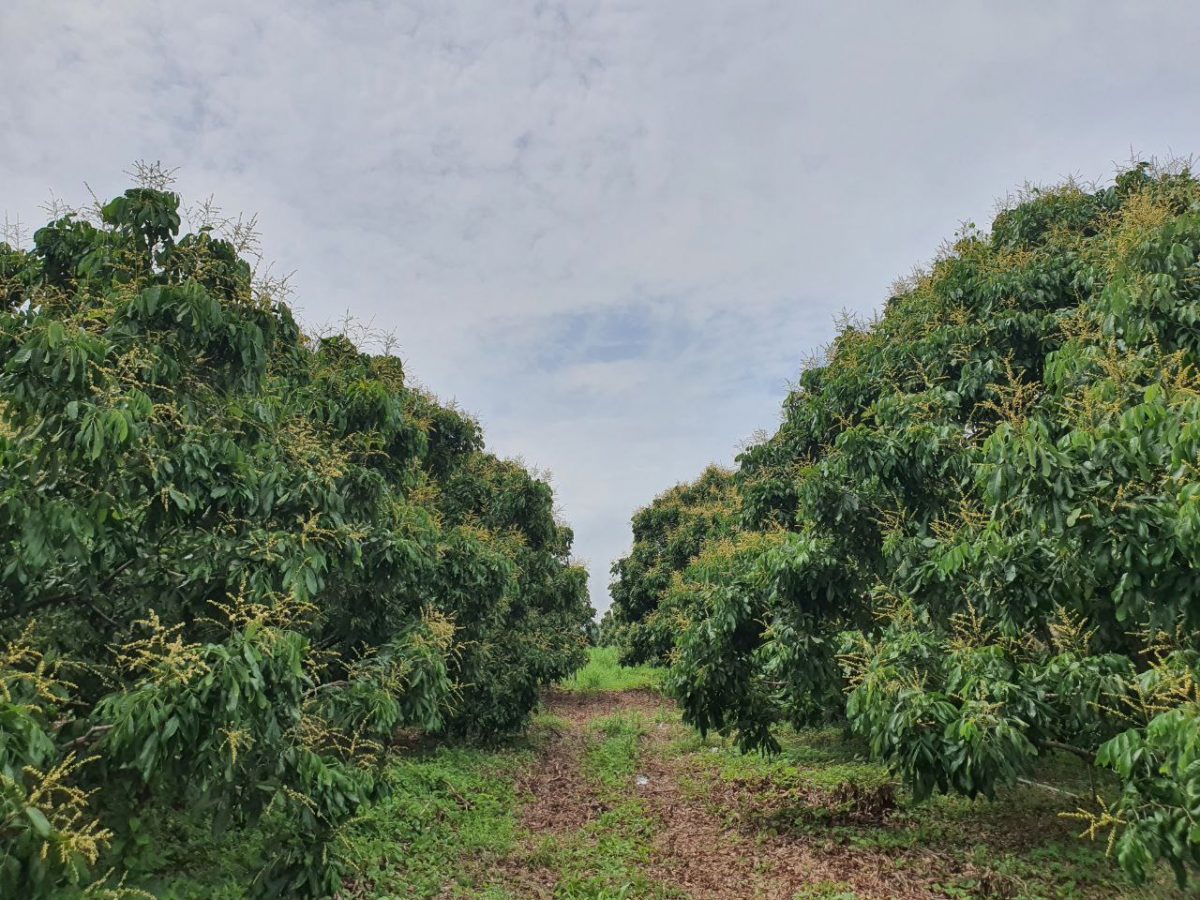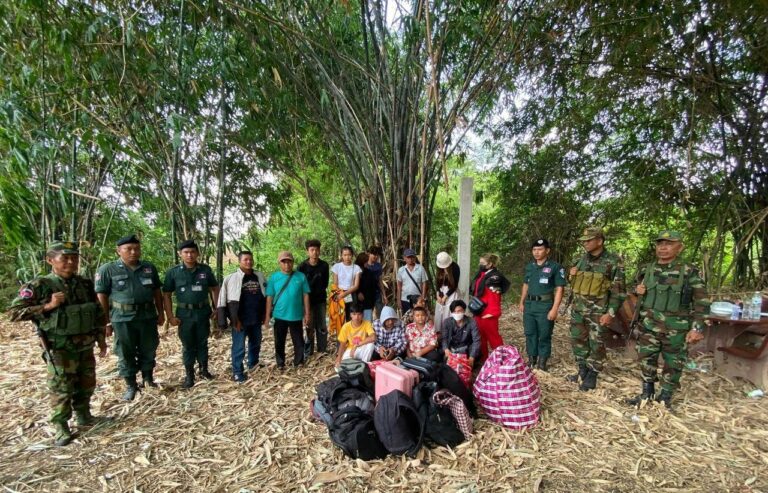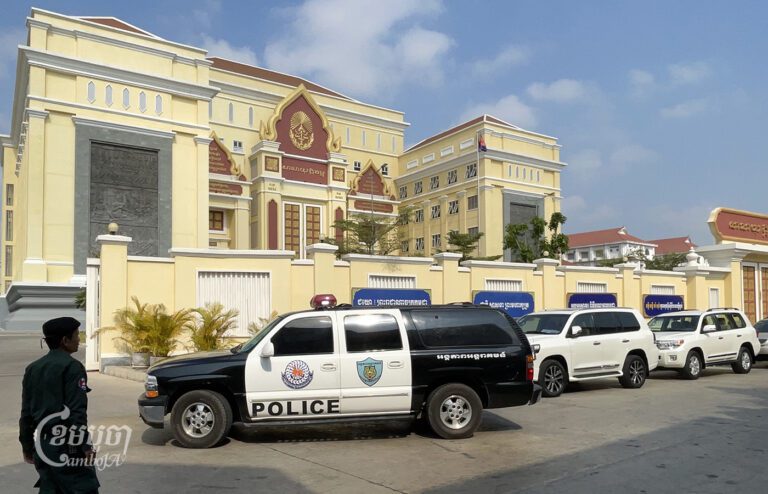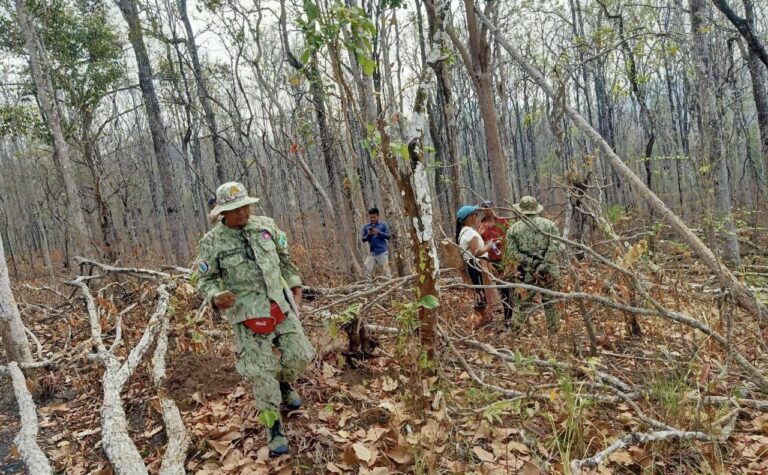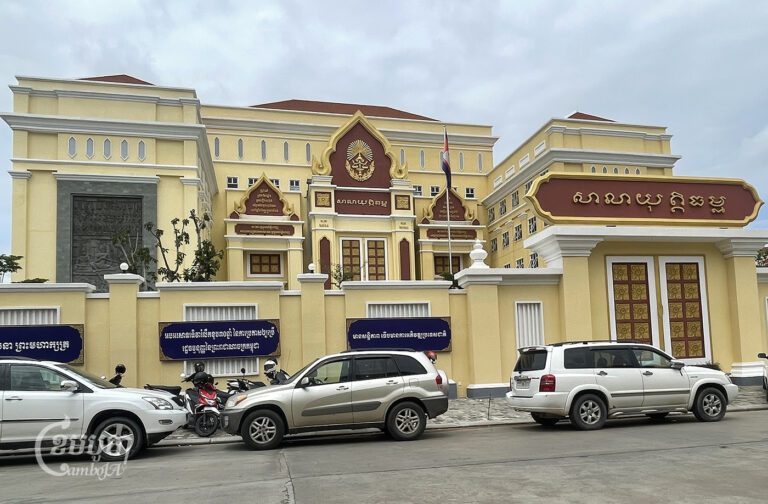The Pailin provincial court is questioning a man allegedly responsible for bringing 47 Cambodian migrant workers, including minors, to work in Thailand illegally. The workers were arrested by Thai authorities on Saturday morning while reportedly crossing through an unofficial checkpoint along the border.
Court deputy prosecutor and spokesman Chea Sa said on Tuesday that the Pailin provincial court is questioning 41-year-old Sok Bunthann in relation to illegally bringing Cambodian migrant workers into Thailand. According to Sala Krao district police chief Meak Saran, Thai authorities arrested the group, which included eight minors, at 4AM on September 4 in Chanthaburi province before handing them over to Cambodian authorities.
He told CamboJA that according to their questioning, they believed that Bunthann was working for a ringleader named “Phal”, who remains at large. Deputy provincial police chief in charge of border affairs Pech Chhoeut said that the migrant workers were arrested while crossing a farm in Pong Nam Ron district, allegedly with the intention of working on a Thai longan plantation. He alleged that each worker had been required to pay 5,000 Thai baht [roughly 150USD] to the ringleader.
“They have livelihood problems with their farms, so they took the risk to illegally cross through the jungle,” he said. “We have cooperated with Thailand authorities to send them back to Cambodia, where we will instruct and educate them and then send them to quarantine for safety.”
He said that at this time of year, Thailand needs workers to pick fruit on their farms, so farmers contact people smugglers to find workers and ways to escape authorities. Although it was a risk for the workers, he said, it was one they had to take — they needed the money.
Pailin provincial police chief Seng Sokun said that locals living along the border had long crossed into Thailand in search of work.
“We also take measures against the ringleaders,” he said. “They still try to secretly cross the border again, and we try our best to prevent migrant workers from illegal border crossings and instruct them not to be cheated.”
Migrant workers who had previously travelled to Thailand for work are still trickling back into Cambodia. Oddar Meanchey provincial spokesman Dy Rado said that Cambodian migrant workers are still returning from Thailand through O’Smach checkpoint, where they have then been treated by Ministry of Health officials.
“Migrant workers seem to be decreasing to around 100 [per day] compared with recently reopened checkpoints, but we don’t allow any workers to return or cross to Thailand except through commercial transportation,” he said.
“There are no migrant workers who illegally cross our border,” he claimed.
But Battambang provincial spokesperson Soeum Bunrith said that there had been several cases of Cambodian people illegally crossing the Thai-Cambodia border before being arrested and sent to quarantine.
Bunrith said that he has never counted the cases of Cambodians attempting to cross the border illegally because it had mainly occurred before the COVID-19 outbreak.
“In the past, we also arrested some ringleaders,” he said. “In some cases, migrant workers go by themselves with no ringleader.”
He said that even though they can sometimes cross from Cambodia, they are arrested by Thai authorities upon arrival and sent back.
“We are careful about migrant workers because we are scared of infections of the Delta variant,” he said. Bunrith added that now, the number of migrant workers returning from Thailand had decreased, with more than 100 migrant workers some days and between 50 to 60 migrant workers on others.
Soum Chankea, the coordinator for human rights group Adhoc in Banteay Meanchey province, said that it had been a common practice for many families living along the border.
“We still see cases of our people who illegally cross into Thailand to find work,” Chankea said.
He said that despite the threat of being arrested, imprisoned or even shot while crossing the border, workers continued to make the journey due to mounting debts and the difficulty in finding work in Cambodia.
“They face issues in the country rather than outside the country because they are in debt, so if they go to work in Thailand … they can earn some money to pay their debt, so it is better than waiting for death in their country,” he said.
Dy Thehoya, program officer of labor rights group Central, said that there had been as many as two million documented and undocumented migrant workers before the pandemic.
“They’re afraid of death rather than COVID-19, they know Thailand still has a high rate of pandemic but they have no choice,” he said. “If they stay, they will have no money to survive and pay their debts.”
With agricultural processing plants and wider investment in infrastructure still limited, he said, workers will likely continue to cross the border looking for a way to earn a living.
“The government should deeply understand the needs of those workers and why they still want to migrate even knowing the risks,” he said. “The government should fill their needs.”


